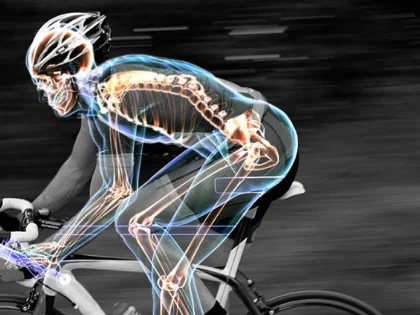Why Should I Do Cycling Everyday?
Though it's widely accepted that cycling is a healthy type of exercise, cycling can be dangerous if you push yourself too hard. It's important that you obtain adequate sleep, water, and food. Furthermore, it's critical to pay attention to your body and take breaks if you experience discomfort or exhaustion.
It’s good for your mental health

As cycling enhances memory and fosters creativity, it's an excellent mental health activity. You can easily focus your thoughts on the tasks at hand when riding because of its regular, consistent action, which soothes the brain and stabilizes bodily and mental activities.
In addition, it helps reduce anxiety, eases tension and stress, and increases energy levels both physically and mentally. Riding a bike can give you an endorphin rush that can make you feel better, and being outside is a great way to get your mind off of everyday concerns.
Furthermore, compared to other types of exercise like weightlifting or jogging, it's far simpler to maintain. You can even ride your bike to work every day. You can begin with leisurely rides and work your way up. Also, a variety of insurance solutions, with monthly rates as low as $8, are available to safeguard your bike. Thus, why do you delay? Get on the road now!
It’s good for your physical health

Whether you choose to ride in your home gym or on the trails, cycling has numerous advantages for your physical well-being. It strengthens the heart, blood vessels, and lungs and is an excellent cardiovascular workout. It can even aid with knee issues and strengthen leg muscles without overdoing it. It can be very beneficial when expecting. Research has indicated that pregnant women who experience regular menstruation typically experience fewer difficult labors and shorter hospital stays.
In addition to helping you lose weight, cycling can help you become more insulin-sensitive. It can also lower stress levels, which could help avoid diabetes. It can also reduce your risk of heart disease and hypertension.
It is crucial to remember that cycling does not increase leg strength, making it an unsuitable form of exercise for people who have osteoporosis. To make sure you are strengthening your bones, it is crucial to combine cycling with other weight-bearing and strength-training workouts.
It’s good for your social life

Cycling is a social activity that you can do in a group, with friends, or on your own. It's fantastic for socializing and meeting new people, which is good for mental health. Socializing can reduce stress and release the hormone oxytocin, according to studies.
Cycling's consistent, rhythmic motions also have a calming impact on the brain, enhancing peace of mind and wellbeing. If you concentrate on each pedal stroke and breathing rhythm, you can even utilize it as a type of meditation.
Riding a bicycle is a great way to improve your mood, lower stress levels, and get your mind in shape. You can still enjoy the health and happiness benefits of cycling without having to embark on lengthy rides every day. Just a quick bike ride to the stores once or twice a week can do the trick. If you're not quite sure where to begin, MensLine Australia offers online or 1300 78 99 98 access to licensed counselors.
It’s good for your finances

Cycling is a fantastic method to burn calories and reduce transportation expenses. You can commute, visit friends, and run errands with your bike. Furthermore, cycling has a lower environmental impact than driving a car. Additionally, parking costs—which are frequently expensive in cities—can be reduced.
Cycling is also a great cardiovascular exercise. By assisting you in coping with daily tensions and producing endorphins, which promote calmness and relaxation, it also enhances the quality of your sleep. Additionally, it lessens your exposure to air pollution, which is prevalent in cities.
When exercising, you should take care not to exert too much pressure on yourself. Excessive training might result in discomfort and injury. Thus, you should always pay attention to your body and take days off when needed. To make sure your body is healing properly, you should also consume a nutritious diet and drink lots of water. Aim for seven to nine hours of sleep per night.










